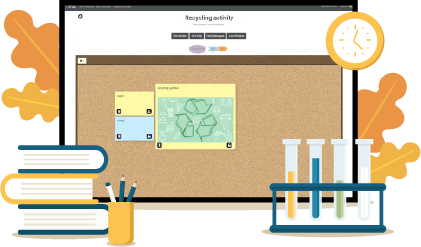Design Thinking for Sustainability Education
Design Thinking For Sustainability Education(DT4S) is a project funded by Turkish National Agency. It has partnership of 6 partners from 6 European countries. Among the partners, there are The Governorship of İstanbul-GOI (Turkey-the coordinator), Tallin University-TLU (Estonia), University of Thessaly-UTH (Greece), Virtual Campus (Portugal), and Advanced Technology Systems (Romania). The project started on the 1st of November 2019 and will last for 24 months till the 31st of October 2021.

Coordinator – ISTANBUL VALILIGI
Partner 1 – PANEPISTIMIO THESSALIAS
Partner 2 – TALLINN UNIVERSITY
Partner 3 – VIRTUAL CAMPUS LDA
Partner 4 – ADVANCED TECHNOLOGY SYSTEMS SRL
Project Description
DT4S Project targets to develop design thinking skills of students. It aims to build problem solving skills, collaboration ability, and capacity to integrate knowledge among secondary students aged 12-16 for preparing them to actively engage in sustainable development and business practices in the future as young professionals. Methodologically, the project will introduce an active problem-based learning approach that challenge learners to identify the parameters of a given challenge and the experiences of individuals affected by it. It will motivate them to introduce design thinking principles in problem solving, such as ideation, brainstorming, designing action plans, evaluation, and synthesis of knowledge innovative, viable solutions to complex issues even when none appears to exist at first glance due to a problem’s complexity.
In terms of implementation and learning delivery, the project will design and develop serious games, namely games that are designed specifically for educational purposes, in order to expose learners in a safe, virtual environment to challenging missions linked to sustainability goals and stories of global interest inspired by the UN SDG. The serious games will challenge learners to synthesize knowledge from diverse subjects of formal curricula, to build collaboration skills, entrepreneurial and innovative thinking, to be creative, and to have the optimism and self-confidence that they have the power to design reasonable and effective actions to real world challenges. In order to ensure the transferability of the proposed problem solving skills of students to the real world, DT4S will further build educational content targeting instructors. The content will enable educators to use the proposed digital learning tools in wider classroom activities with the objective of empowering their students to be able to apply emerging knowledge and problem solving capacity in the real world towards becoming active citizens that will engage in sustainable development in their communities.
We will have 5 main concrete outputs in DT4S Project:
1) An active methodological learning framework for building sustainability skills through design thinking
2) A digital learning platform for building sustainability skills through design thinking principles
3) Sustainability education activities for deployment through the DT4S platform
4) Instructional process support
5) Good practices on the deployment of design thinking for sustainability education stemming from evaluation activities


